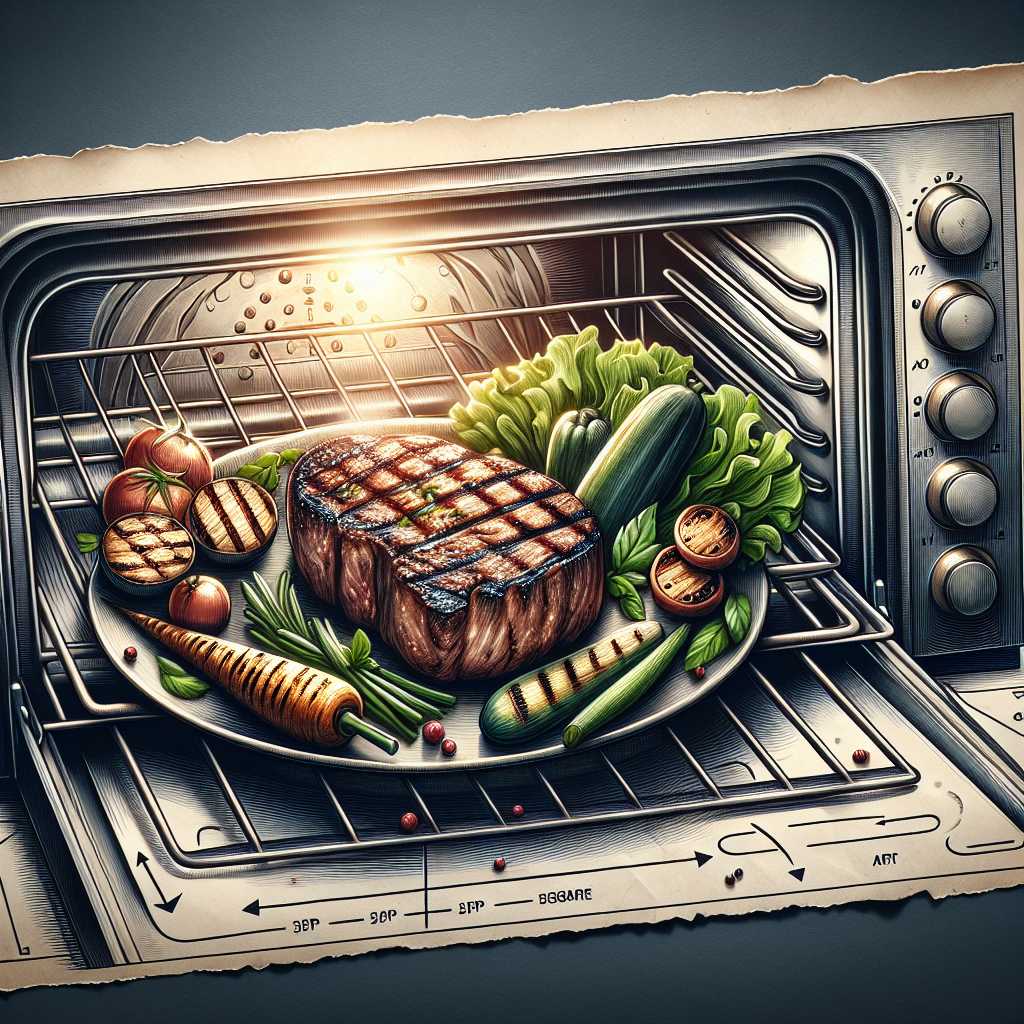Exploring the Culinary Technique of Broiling: A Comprehensive Guide
Broiling is a cooking method that can dramatically alter the texture and flavour of various foods. This culinary technique, despite its simplicity, requires careful consideration to master the art of providing a delightful char and crispiness while ensuring food is cooked appropriately through. This comprehensive guide aims to delve into the nuances of broiling, including its definition, how it differs from grilling and baking, ideal foods for broiling, the necessary equipment, techniques and tips for best results, as well as potential health implications.
Understanding Broiling: What Does It Mean to Broil Food?
Broiling is a high-heat cooking method typically performed in an oven using direct radiant heat from above. Unlike baking, where food is surrounded by hot air, broiling subjects food to very high temperatures for a short period—usually around 500°F (260°C) or higher—resulting in a quick cook time. It is ideally suited for cooking thin cuts of meat, vegetables, or fleshy fish fillets that benefit from a caramelized crust or char without needing long cook times.
Broiling vs. Grilling vs. Baking: The Distinctive Differences
It’s easy to confuse broiling with similar cooking methods such as grilling and baking due to their usage of high heat. However, some characteristics distinctly set each method apart:
–
Broiling
places food closest to the heat source located inside the top of an oven or dedicated broiler, which typically provides more concentrated direct heat.
–
Grilling
involves cooking food on a grill over a heat source, traditionally flames. Similar to broiling, grilling cooks food with direct heat—however, from below rather than above.
–
Baking
envelops food in steady indirect heat within an enclosed space, promoting even cooking but typically without the caramelization broiling can achieve.
Ideal Foods for Broiling: Best Candidates for Crisp Results
Certain foods excel under a broiler’s intense heat. These include:
–
Thin Meat Cuts
such as steak, chops, kebabs, and chicken breasts benefit from fast cooking that still leaves a delectable crust.
–
Seafood
like salmon, shrimp, and scallops can be quickly cooked without drying out when subjected to the broiler’s intense heat.
–
Vegetables
achieve a pleasing charred flavor and texture when broiled — tomatoes, bell peppers, asparagus, and zucchini are prime examples.
Broiling Equipment: From Oven to Broiler Pan
To successfully broil foods, the following equipment is typically employed:
– A kitchen oven with a built-in broiler compartment or function.
– A sturdy broiler pan capable of withstanding the high temperatures without warping.
– An adjustable oven rack that can be brought close to the broiler element for intense heat exposure.
Mastering Techniques: Expert Tips for Perfect Broiling
For perfect results when using this methodology, consider these tips and guidelines:
– Preheat the broiler on high for several minutes before introducing food.
– Position the oven rack so that the surface of the food is approximately 3 to 4 inches from the heat source unless recipe specifications dictate otherwise.
– Due to quick cooking times, remain vigilant and check the food regularly, flipping it if necessary for an even char.
– Utilize aluminum foil or a broiler pan to catch any drippings to minimize mess and potential smoke.
Health Considerations: The Necessity of Caution When Broiling
Though greatly enhancing flavor and texture in many dishes, broiling comes with some health considerations. The intense heat can occasionally produce harmful compounds such as polycyclic aromatic hydrocarbons (PAHs) and heterocyclic amines (HCAs), particularly when fats and juices drip onto high heat surfaces and create smoke. To mitigate these risks:
– Trim excess fats off meats before broiling.
– Ensure proper ventilation exists in the kitchen during the cooking process.
– Avoid charring food as much as possible
Notes
Image Description
A tantalizing piece of steak with grill marks on it resting on a plate beside vegetables with visible charring serves as an illustration of broiled foods. There is also a modern oven with an open door revealing an internal set-up for broiling – showcasing an upper heating element and an oven rack positioned close to it – highlighting essential equipment often used in this technique.
